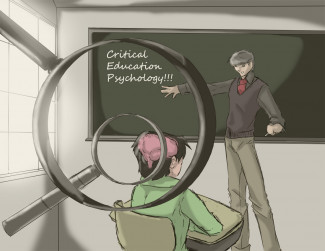
Johns Hopkins UniversityEst. 1876
America’s First Research University
Behind the Book: Critical Educational Psychology


Have you ever wondered why Piaget is a household name in any discourse related to child development? Although Piaget’s theory is well ensconced in schooling discourse, Vygotsky’s view of human development is gaining a great deal of traction. Why? Grit is considered a noncognitive skill that has predictive value for academic success. Is grit a new idea that represents psychologists’ efforts to understand the whole child and the factors that influence academic achievement? The value for measuring and teaching creativity and critical thinking in contemporary discourse has increased. Why have policy makers suddenly found value in these so-called higher order thinking skills? These questions, as well as many others, are considered in the book Critical Educational Psychology. The foundational assumption in the book is that there is no such thing as a neutral and value-free educational psychological concept or theory. There are cultural, ideological, philosophical, and historical contexts that underpin the emergence and acceptance of educational psychological knowledge. The deliberation over these contexts is what I refer to as critical educational psychology. Ideology, philosophical assumptions, cultural narratives, norms, and values circulate through educational psychology.
This book is of utmost importance because psychology is often treated as means to understand and solve a broad range of social, economic, cultural, and political issues. It is thus of little surprise that educational psychology has a solid foothold in teacher education discourse. Elementary and secondary schooling in the United States is often conceptualized as rife with problems. One way that policy makers and researchers address these problems is by targeting teachers’ knowledge, skills, and dispositions. In conjunction with enthusiasm, content mastery, pedagogical savvy, and culturally responsiveness, teachers are expected to know and apply educational psychology, which is the study of learning and behavior in formal and informal contexts. Topics in this field include cognitive processing, human development, motivation, higher order thinking, assessment, noncognitive skills, and classroom management. The guiding assumption is that the more teachers know about these areas, the better they can teach students. Thus, educational psychology is often a formal part of teachers’ training. There is no shortage of discourse on the value and benefits of applying psychology in the classroom. There is, on the other, a shortage of critical interrogation of that knowledge to be applied. The interrogation of these contexts can support ethical reflections and deliberations over the application of psychology in the classroom. This book is a critical interrogation of the study of human learning and development in schooling contexts.
Stephen Vassallo is an associate professor of education at American University. He is the author of Self-Regulated Learning: An Application of Critical Educational Psychology. His latest book, Critical Education Psychology, is available now.


